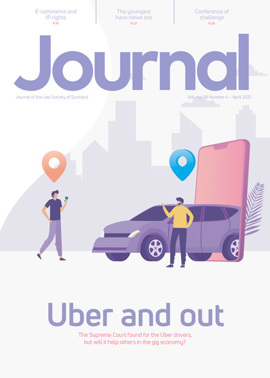The Eternal Optimist: To call or not to call?
On the second Tuesday of every month I catch up at 8am with a group of lawyers to share our thoughts and questions on what is happening in the legal world. Over lockdown it has proven to be a great support mechanism and a source of insight into the wider legal marketplace. This piece arose as a direct result of one of our recent conversations.
 The legal market for many remains particularly busy. Practitioners’ time is limited and the demands of the public increase constantly. Worse still, there are differences in communication preferences and platforms which further add to the challenges. By preferences I’m referring to whether it should be verbal or written communications and the tendency both with clients and solicitors to avoid telephone calls, thinking it is perhaps quicker for the practitioner or easier for the client. Platforms are even more challenging, with the myriad different ways that people can now communicate, so how do you ensure that messages aren’t missed?
The legal market for many remains particularly busy. Practitioners’ time is limited and the demands of the public increase constantly. Worse still, there are differences in communication preferences and platforms which further add to the challenges. By preferences I’m referring to whether it should be verbal or written communications and the tendency both with clients and solicitors to avoid telephone calls, thinking it is perhaps quicker for the practitioner or easier for the client. Platforms are even more challenging, with the myriad different ways that people can now communicate, so how do you ensure that messages aren’t missed?
There are available a multitude of software based solutions that can help. Systems that can gather together all the communications from different platforms and channel them into one “feed”, programs that can keep in touch with clients automatically, and apps that can schedule meetings and emails. All have merit and a place in a busy growing legal office. The view of the breakfast group, though, seemed to be fairly unanimous on one piece of technology, with some interesting insights into its benefits and why it isn’t used more.
Why call?
Pick up the phone! Generally a call, although it may take a little longer, saves time in the long run. Only a very small percentage of information is passed through the written word: so much more through tone, intonation etc. Likewise, not everyone’s proficiency with language is the same. How many disagreements have I had with my wife simply because we each had a different understanding of what “I’ll make dinner” meant? A conversation will help cut to the core of the issues, maximise the chance of understanding being achieved and minimise the need for further communications.
So, why do we still hesitate to do so? The answers are many and varied, but I suspect are seldom to do with time management. Many, dare I say younger, clients just don’t do telephone calls; it’s not their favoured medium. With them there may be nothing we can do except adapt to the newer technologies mentioned above. For most clients, though, telephone is perfectly acceptable and it is we who resist it. I suspect for many it’s through fear, or at least discomfort. Perhaps we dislike confrontation, or worry that we might not be able to answer a query. Most practitioners at some level will enjoy even the limited time that an email gives to research or consider a point and to frame a proper response. Likewise, some of us will feel emails allow us a protective barrier between ourselves and a challenging client.
My own experience, for what it is worth, is that anything more challenging than a confirmation email is better dealt with face to face, or over the phone. Issues avoided or delayed only ever get worse, and many can be prevented by good early direct communication. So, invest in the great systems that make routine communications easier, but ask yourself, wouldn’t a call be better?
Oh, and if you would like to join us on a Tuesday morning, drop me an email.
Get in touch
If any of the topics that I cover resonate with you or there is a particular issue that you’d like raised, please contact me at stephen.vallance@hmconnect.co.uk
Perspectives
Features
Briefings
- Criminal court: Of dockets, and much more
- Licensing: A justiciable freedom?
- Planning: Development at pace
- Insolvency: Solicitor debts: sue the judicial factor?
- Tax: Budget briefing
- Immigration: When human rights meet national security
- Scottish Solicitors' Discipline Tribunal
- When the “twa kingdoms” collide
- In-house: People-centred, remotely







